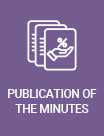Banco de la República reduces the benchmark interest rate 25 bp to 5.25%
The Board of Directors of Banco de la República at today’s meeting decided to reduce the benchmark interest rate 25 bp to 5.25%. For this decision, the Board mainly took into account the following aspects:
- In July, annual consumer inflation stood at 3.4%, and the average of core inflation indicators posted at 4.9%. These figures are lower than those registered a month ago. Analysts’ inflation expectations to December 2017 and 2018 are 4.16% and 3.64%, respectively. Those embedded in public debt bonds recorded slight changes, and are slightly above 3.0% for 2018.
- The effects of the strong transitory supply shocks that deviated inflation from its target continue to fade. This is suggested by the slowdown in the food CPI and the behavior of the prices which are more sensitive to the exchange rate. The average of core inflation indicators declined more slowly as a consequence of the indexation of prices and of the transitory effect of the increase in indirect taxes, which had already been assimilated during the first months of the year.
- The contribution of food CPI to the decline in annual inflation may reverse during the rest of the year. Therefore, the forecasts for that period suggest a slight increase in annual inflation.
- The external demand from the economies of the region remains weak, in contrast to that from developed economies. In the United States, inflation remains low, and the likelihood of increases in the Fed’s benchmark interest rate reduced for this year. Oil prices are close to the average estimated by the technical staff for 2017, and Colombia’s terms of trade exceed the low average registered in 2016. In this environment, the peso has appreciated vis-à-vis the US dollar.
- In Colombia, GDP growth in the second quarter (1.3%) was close to the technical staff’s estimate. Domestic demand accelerated more than expected due to the behavior of consumption government. The dynamics of household spending remained weak, and gross capital formation growth was low, although better than in the first quarter. Net exports subtracted more than estimated from growth due to the increase in imports.
- The available figures of economic activity suggest that the slowdown of the economy has bottomed out, and that higher growth can be expected during the second half of the year.
Based on this information, the Board considered the following factors for its decision:
- Weakness in economic activity and the risk of a slowdown beyond what is compatible with the deterioration in the dynamics of income due to the fall in oil prices. Recent indicators confirm an excess capacity of the economy, although its magnitude is highly uncertain.
- Uncertainty about the pace of convergence of inflation to its 3.0% target. Indexation mechanisms and the persistence of inflation continue to be reflected on core inflation indicators, which exceed the inflation target (3.0%).
- The current level of the real interest rate is compatible with the convergence of inflation to the target over the policy horizon, and some indicators suggest that it is close to its neutral level, although its value is uncertain.
With this, the Board of Directors decided to reduce the benchmark interest rate 25 bp.
The decision to reduce the benchmark interest rate was approved by four (4) members of the Board. Two other Board Members voted in favor of reducing the benchmark interest rate by 50 bp, and the remaining one voted not to modify it.
Bogotá














.png)

































